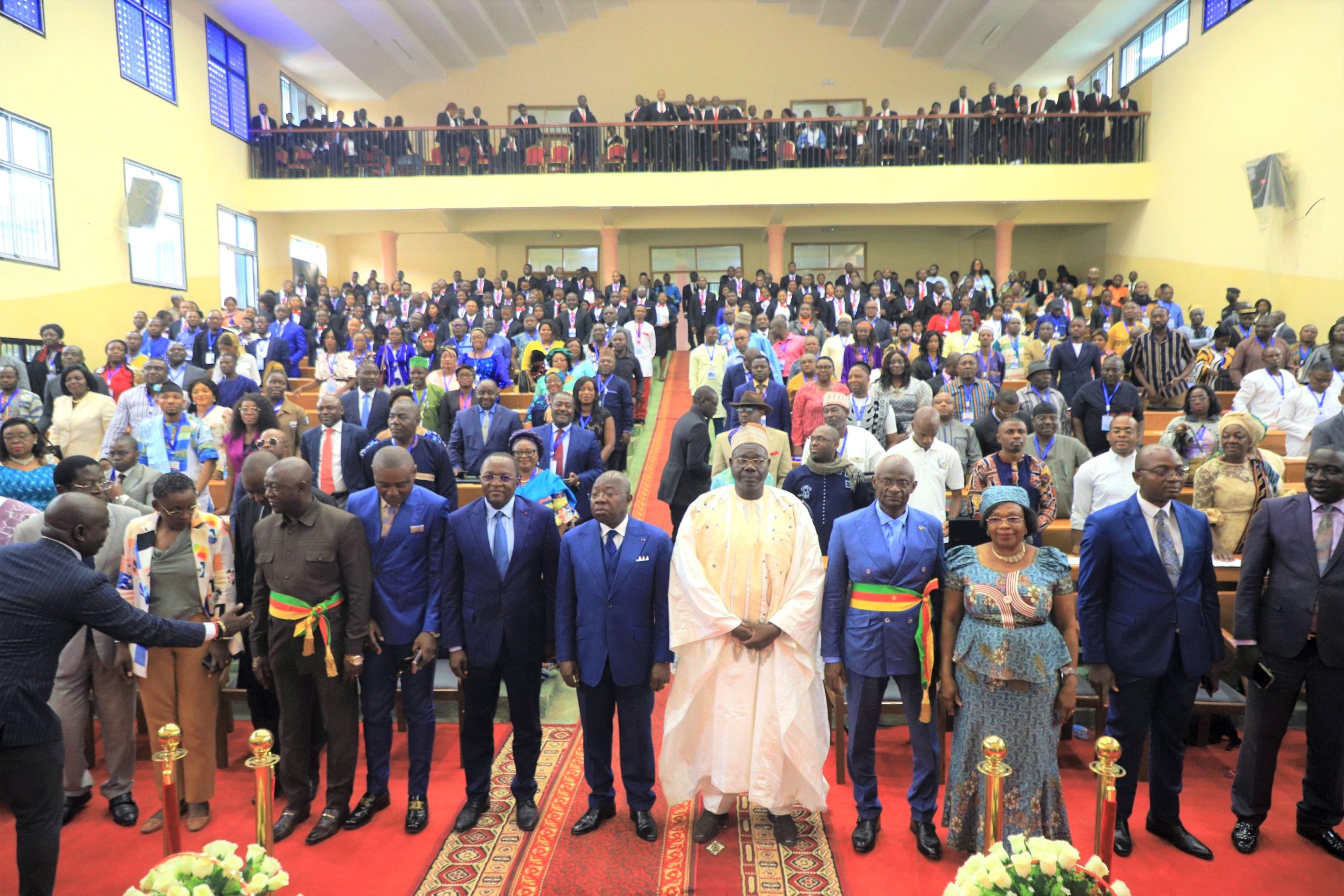From 21 to 23 June 2023, the National School of Local Administration (NASLA) was the organised and hosted a scientific colloquium on the theme "Crisis management in Cameroon within the decentralization context: challenges and prospects for regional and local authorities". The colloquium brought together local authorities, researchers, teachers, students, civil society, journalists and many others.

It was therefore within the framework of the research activities carried out by the Institution that the decision to organise a Scientific Colloquium on the theme: « Crisis Management within the Decentralization Context in Cameroon: Challenges and Prospects for Regional and Local Authorities (RLAs) ». This scientific reachout was therefore aimed at assessing the contribution of the RLAs in the dynamics of Crisis Management in Cameroon and to propose policy recommendations for these Decentralised Structures.
The advent of this scientific activity draws back to the 29th of October 2022 with the launching of the Call for papers. This call invited research experts to submit abstracts in line with the axes of the Colloquium which centered on the following: Risk Management systems and instruments in Cameroon, Regional and Local Authorities and Strategic programming of risks, Information and Communication Technologies, digitalisation and dematerialisation of procedures: the case of RLAs in the digital management of Crisis, RLAs and inclusive crisis management and International Projection of RLAs in Crisis Management in Cameroon.
Thus, the 21st to 23rd of June marked an important timeline for the NATIONAL SCHOOL OF LOCAL ADMINISTRATION(NASLA) as the institution organised its very first Colloquium. The proceedings of the Colloquium were structured around three (03) key elements; The official opening ceremony, The presentations and debates by key speakers and the official Closing Ceremony. The Opening and Closing Ceremony was preceded over the Minister of Decentralisation and Local Developemnt, Mr. Georges ELANGA OBAM. This three-day debate consisted of both Plenary and Parallel sessions where both Experts and Authors of Papers presented scientific knowledge on the sub – axes of the Colloquium theme. Some prominent presentations were made on: Operational Framework for Disaster and Crisis Management at the Local Level and Post Crisis rehabilitation, the legislative and regulatory framework for disaster and Crisis Management at the Local Level, Regional and Local Authorities and emergency planning: How can we prepare Regions to identify and Reduce their vulnerability to Crisis? And the Contribution of some actors of the decentralisation process to crisis and Disaster Management in Cameroon and Experiences from Abroad.
This will also provide a cross-disciplinary scientific forum for reflection, experience sharing, discussions and expertise to enable Regional and Local Authorities boost their capacity to respond to the various multi-faceted crises to which Cameroon remains exposed.

By the end of this important scientific activity, it was recommended that NASLA, should strengthen the capacity-building of RLA staff, municipal and regional executives, administrative authorities and decentralised State services on crisis management issues and determine endogenous risk prevention and management mechanisms. To the Regional and Local Authorities, they can pool resources and means to reduce the impact of risks when several councils in the same area are faced with the same challenges and ensure continuation of development actions during successive terms of office of Municipal and Regional executives. To the public authorities, they can ensure effective coordination between local and central government bodies for efficient operational crisis management.
